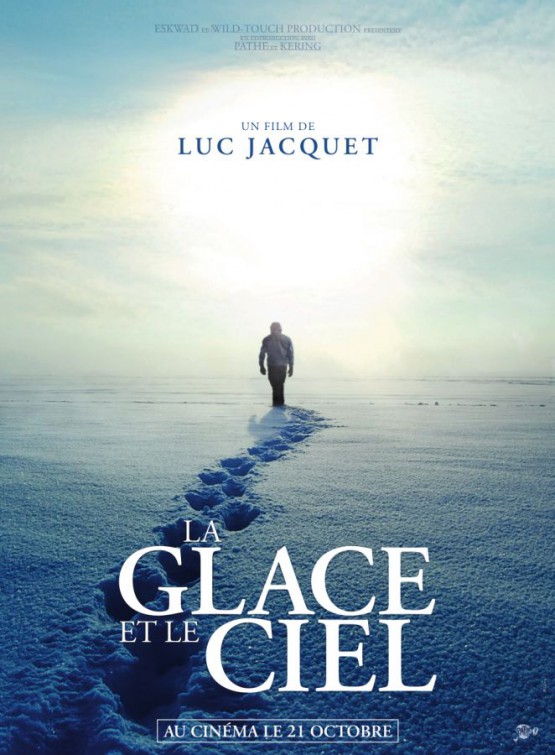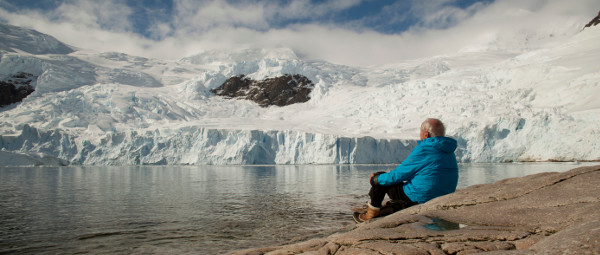 Director Luc Jacquet ventures into the past to show us our future in Antarctica: Ice and Sky, one of the best enviro-docs that I have seen in recent times. A film about climate change that revels in the captivating splendour of its natural subject as much as it does science and the ravages of humanity. It’s an appropriate film to watch right on the outset of what could very well be four of the most environmentally disastrous years on record. A timely reminder that even in the depths of the Cold War, the USA, France and Russia worked together for the greater good of the planet.
Director Luc Jacquet ventures into the past to show us our future in Antarctica: Ice and Sky, one of the best enviro-docs that I have seen in recent times. A film about climate change that revels in the captivating splendour of its natural subject as much as it does science and the ravages of humanity. It’s an appropriate film to watch right on the outset of what could very well be four of the most environmentally disastrous years on record. A timely reminder that even in the depths of the Cold War, the USA, France and Russia worked together for the greater good of the planet.
Like he did with Oscar-winning March of the Penguins, Jacquet shows a distinct knack for taking the potentially dry blueprint of a nature documentary and manipulate it into something more broadly cinematic. With the particularly impressive work of editor of Stéphane Mazalaigue, Jacquet has taken the 16mm archival footage of French glaciologist Claude Lorius’s expeditions to Antarctica and turned them into a compelling, thrilling story of scientific breakthroughs. So rapid-fire are some of the discoveries of this 90-minute film that it bears repeating that many of them came upwards of five years apart, the treks detailed in boisterous – occasionally too much so – detail by the narration of Michel Papineschi in the place of the 84-year-old Lorius.
The footage assembled here is often breathtaking with the archival footage displaying the ragged, rough edges of amateur or candid video, rather than the staged beauty of Flaherty or Cousteau’s films. Starting in the present day as Lorius’s shadow creeps across the shimmering, icy surface, we are soon taken back to 1955 and eventually see Lorius over the decades, the sky a seemingly never-changing shade of deep aquamarine. One sequence of the scientists sitting under the stars on a windless Antarctic night as the green and purple lights of Aurora Australis swirl above is awe-inspiring. Others of Laurius and his fellow scientists living in cramped quarters show the even less glamorous side behind these historic moments in time.

The most memorable image is perhaps one back in the present day as cinematographer Stéphane Martin sends a drone camera over the top of Lorius as he stands atop another beautiful snow-covered peak only to carry on further in a single take towards landscape that closer resembles a quarry or a canyon where a bubbling creek between rocky masses is the only reminder or what used to be. Periodic reminders of the melting ice-caps, the drip-drip-drips enveloping the sound design, mean the film never allows its audience to entirely forget that for all the talk of studying it in decades gone by, climate change really is happening. If the final sequence enforce this with a bit more obviousness than the rest of the film, then it's hard to blame them. This is a film about a man whose life mission was to inform the world of what we're doing to our planet and his work is being forgotten in favour of short-sighted ideology. The film's structure could offer sceptics an entry point, which makes the film even more valuable to recommend, but whatever one's politics, it is a beautiful film to watch and a timely reminder of how fleeting our time on Earth really is.
Release: Opens in NY, LA and on VOD this week, with more cities to follow.
Oscar Chances: Luc Jacquet is an Oscar winner so he might get a look in more than others, but environmental activism docs can be more miss than hit. This is one category where the very early release date doesn't mean anything, but it'll be hard to gain critical attention later in the year if it (sadly) gets forgotten about now.